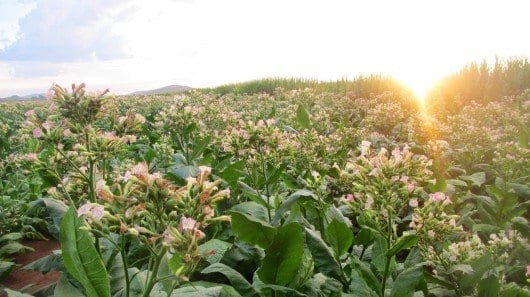
“If women are dissuaded or excluded from even a handful of opportunities, she continued, the loss to science is enormous.”
As an undergraduate student in biology, I spent several weeks in Costa Rica one summer with an older graduate student on a research project deep in the cloud forest. It was just the two of us, and upon arriving at our site, I discovered that he had arranged a single room for us, one bed.
Mortified but afraid of being labeled prudish or difficult, I made no fuss. I took the lodge owner aside the next day and requested my own bed. The problem ended there, and my graduate student boss never made any physical advances.
Reflecting back, I’m struck by how ill equipped I was to deal with this kind of situation, especially at 19. My university undoubtedly had a harassment policy, but such resources were thousands of miles away. I was alone in a foreign country and had never received any training on my rights and resources in the field.
I’d forgotten about this experience from two decades ago until I read areport published July 16 in the journal PLOS One. Kathryn Clancy, an anthropologist at the University of Illinois at Urbana-Champaign, and three colleagues used email and social media to invite scientists to fill out an online questionnaire about their experiences with harassment and assault at field sites; they received 666 responses, three quarters of them from women, from 32 disciplines, including anthropology, archaeology, biology and geology.
Almost two-thirds of the respondents said they had been sexually harassed in the field. More than 20 percent reported being sexually assaulted. Students or postdoctoral scholars, and women were most likely to report being victimized by superiors. Very few respondents said their field site had a code of conduct or sexual harassment policy, and of the 78 who had dared to report incidents, fewer than 20 percent were satisfied with the outcome.
The findings are depressingly similar to the data some colleagues and I collected this year from an online questionnaire sent to science writers.
The Latest on: Harassment in Science
[google_news title=”” keyword=”Harassment in Science” num_posts=”10″ blurb_length=”0″ show_thumb=”left”]
via Google News
The Latest on: Harassment in Science
- Lawsuit accuses Northwestern University of enabling harassment at pro-Palestinian encampmenton May 1, 2024 at 5:31 pm
CHICAGO (CBS) -- Three Northwestern University students filed a lawsuit Wednesday accusing Northwestern University of enabling the harassment of Jewish students when a pro-Palestinian tent encampment ...
- Poll workers face high levels of harassment and abuse, new poll showson May 1, 2024 at 3:27 pm
Poll workers have reported more cases of harassment and threats than they have in years, and a suspected 50% of threats go unreported.
- Saudi Arabia confirms a fitness influencer received an 11-year sentence over 'terrorist offenses'on May 1, 2024 at 4:59 am
Saudi Arabia confirmed in a letter to the United Nations that a female fitness instruction who was popular online received an 11-year prison sentence but did not specify any of her alleged “terrorism ...
- Workplace sexual harassment law in India: Building a case for a law focused on women workerson May 1, 2024 at 12:42 am
Men and transgender persons also face harassment at the workplace, but the solution is not to include them within the Sexual Harassment of Women at Workplace (Prevention, Prohibition and Redressal) ...
- Financial, sexual scandals follow top guy in “Democrats for Cruz” campaignon April 30, 2024 at 1:04 pm
Javier Palomarez, former USHCC head, embroiled in financial and sexual harassment scandals, now supports Ted Cruz.
- One in seven Australian adults admits to workplace technology-facilitated sexual harassment, new study findson April 30, 2024 at 12:17 pm
The first national study to investigate workplace technology-facilitated sexual harassment (WTFSH) has revealed 1 in 7 Australian adults surveyed admit to engaging in this form of sexual harassment at ...
- Six states sue Biden administration over new Title IX protections for trans athletes in girls' sportson April 30, 2024 at 12:00 pm
Tennessee Attorney General Jonathan Skrmetti led six states in suing the Department of Education due to the overhaul of Title IX of the Educational Amendments Act.
- Independent Investigator Slams OHSU’s Handling of Sexual Harassment Complaintson April 29, 2024 at 5:50 pm
An independent investigator today handed Oregon Health & Science University’s board of directors an 87-page report faulting the school’s handling of allegations that top doctor had secretly taken ...
- What's happening this week in Buffalo Niagara business?on April 29, 2024 at 2:46 am
What was the solar eclipse worth to Buffalo Niagara tourism? $14.7 million. Daemen University and Villa Maria College have partnered on new high-tech physical therapy institute. Nostalgia reigns as ...
- Turton alleges harassment and Walsh alleges obstruction by UB in student rep. raceon April 24, 2024 at 4:22 pm
Turton provided no details or evidence of the alleged harassment and threats in the final hours of an unusually contentious race for student representative.
via Bing News









